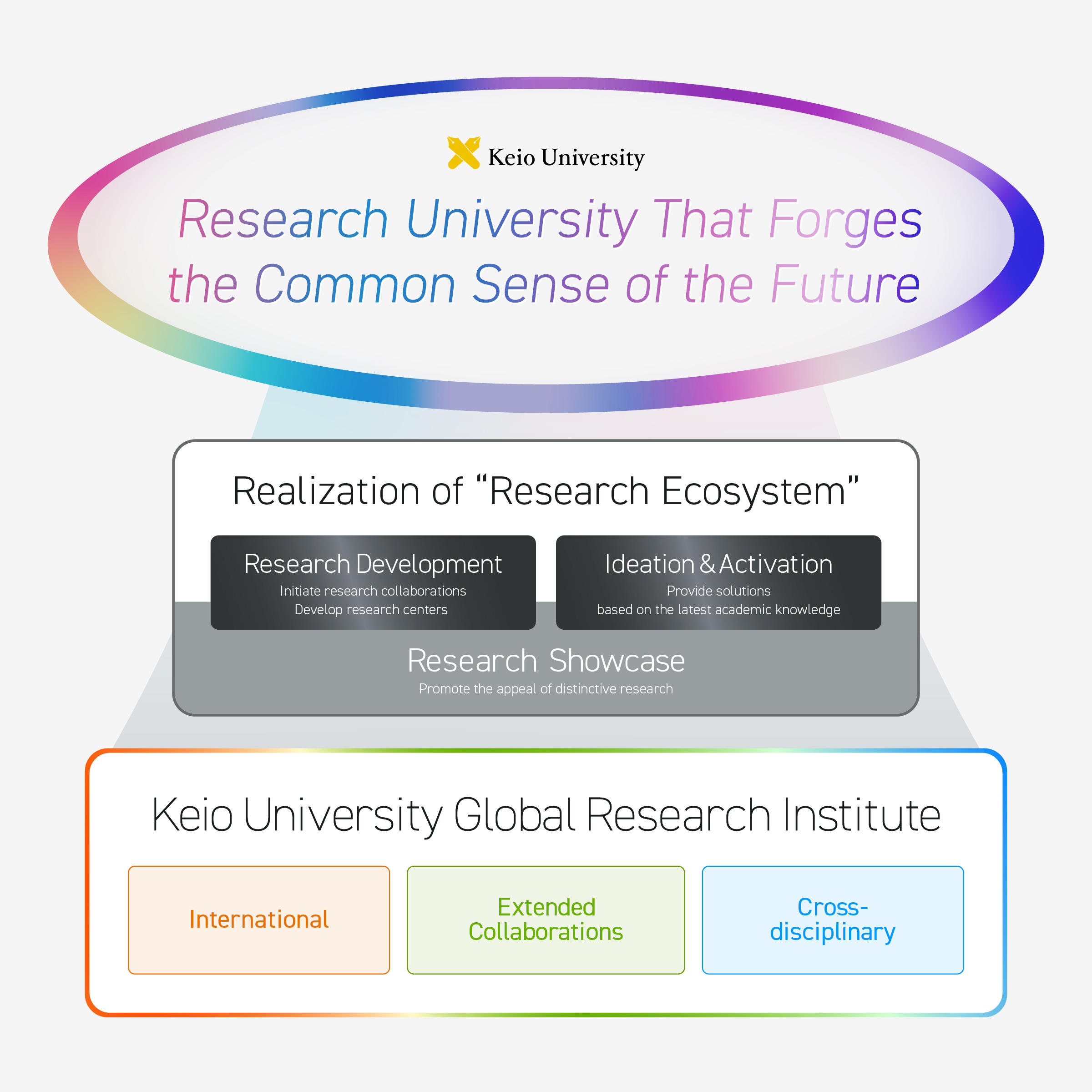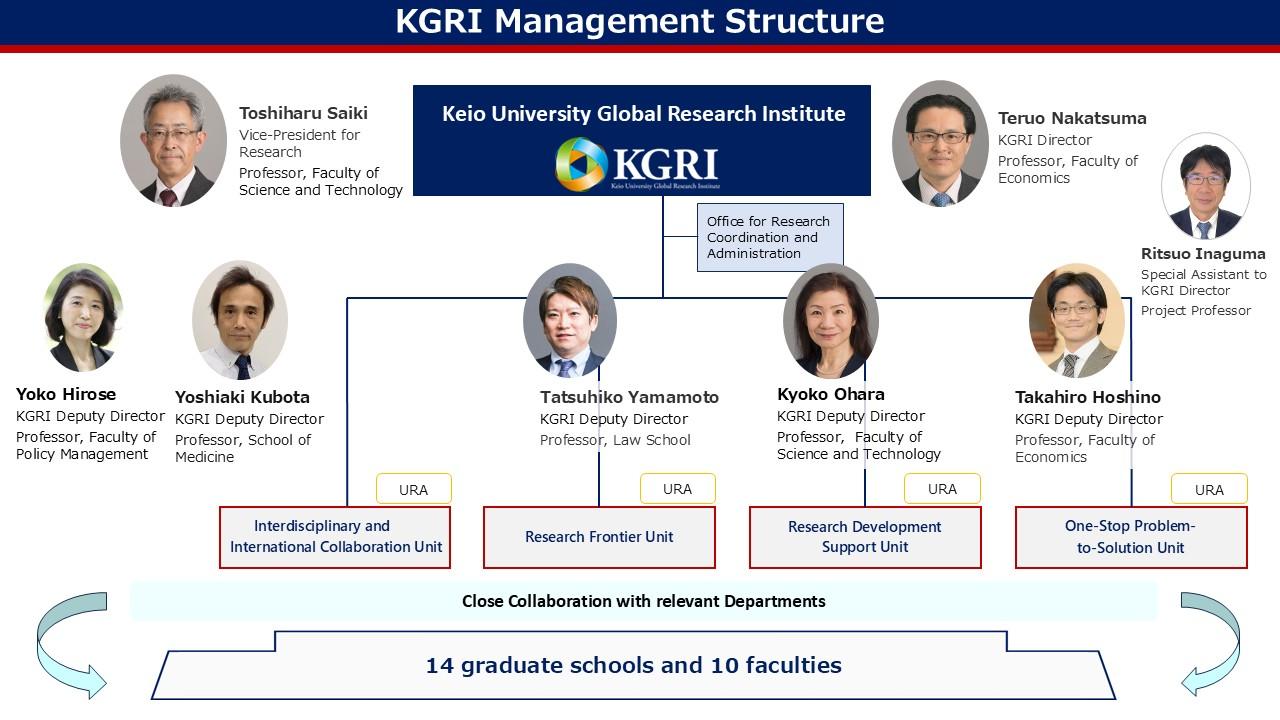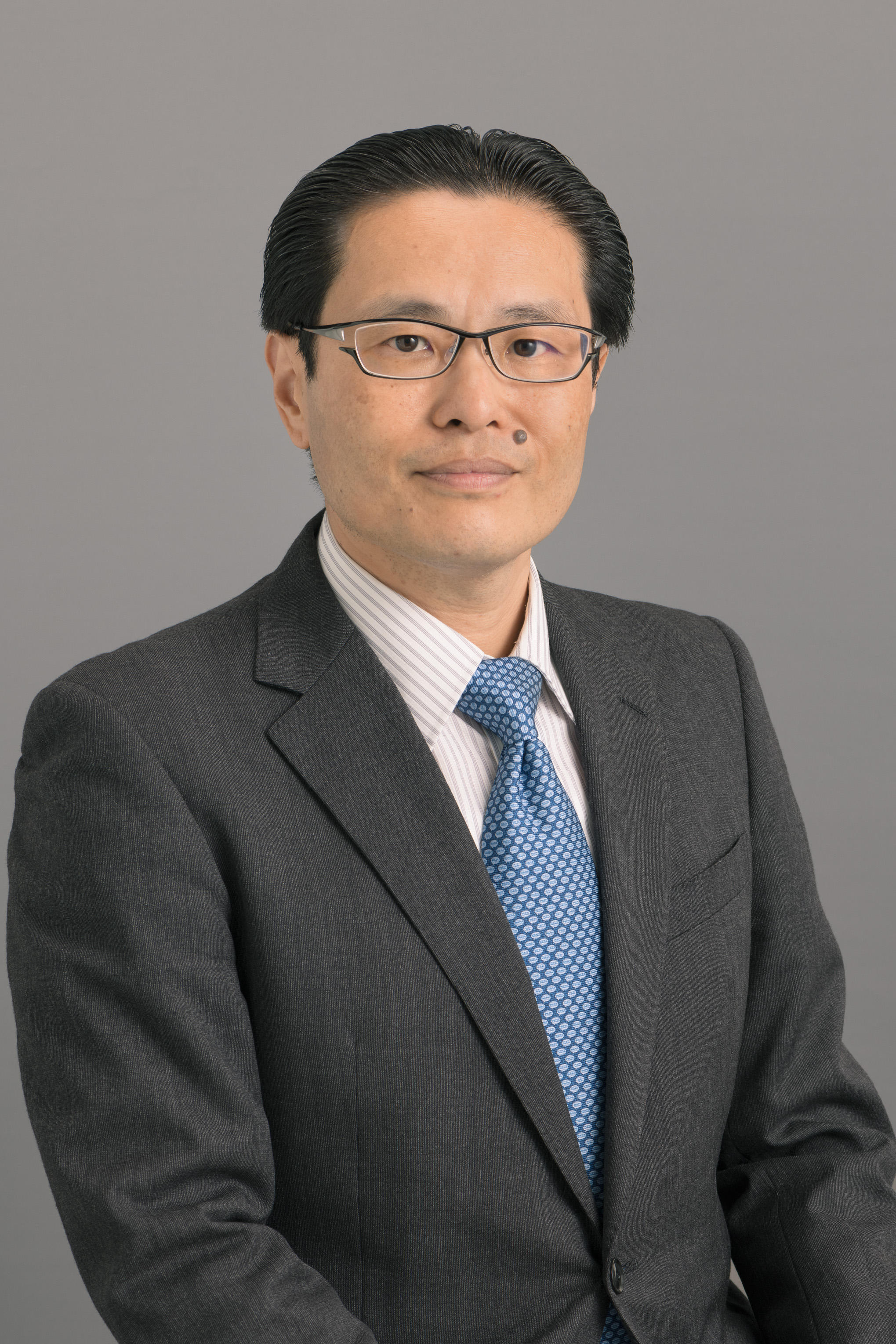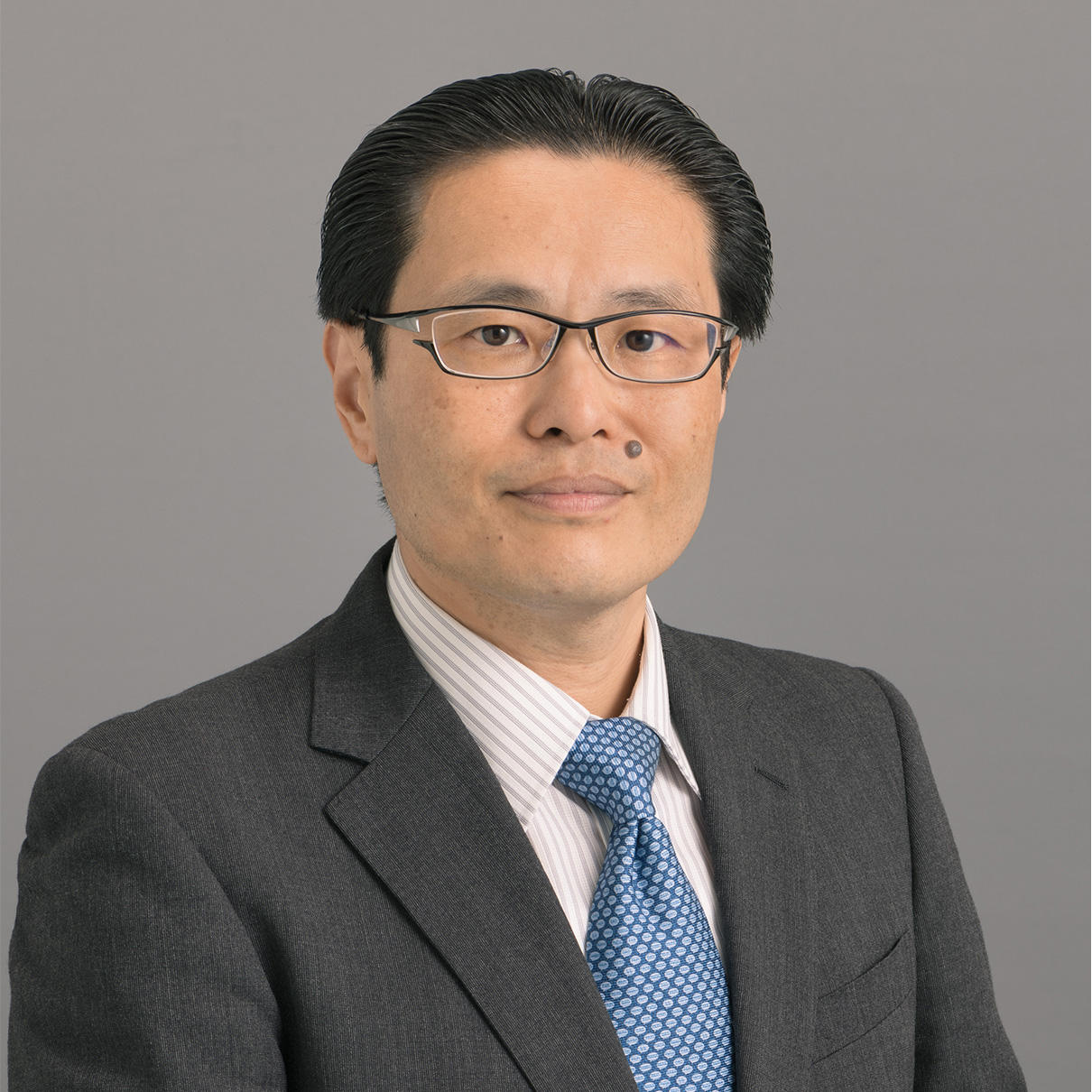About KGRI
Impacting Solutions to Global Issues by Combining Outstanding Expertise
The Keio University Global Research Institute (KGRI) was established in November 2016 as a research organization to bridge faculties and graduate schools across the university. KGRI aims to promote interdisciplinary and international collaborative research that goes beyond the boundaries of singular academic disciplines and international borders. It also aims to share research outcomes both in Japan and worldwide, further promoting engagement in joint research.
To achieve this goal, KGRI has set up more than 40 centers and projects funded by external sources or through internal grants, covering a wide range of research topics--from basic research to addressing social challenges facing the world.
In 2022, Keio University set its goal of becoming a "Research university that forges the common sense of the future". In line with this vision, KGRI has expanded its role from being a university research organization to also creating mechanisms to enhance the overall research capacity of the university. Starting from the 2024 academic year, through the Program for Forming Japan's Peak Research Universities (J-PEAKS), KGRI has established four units, each under the leadership of a deputy director, employing university research administrators (URAs), specialists, and staff to build structures that further enhance the university's research capabilities.


As A "Research University that Forges the Common Sense of the Future"
Common sense evolves over time. What was once considered unconventional can, with advancements in science and shifts in societal values, become widely accepted. At the same time, as societal and regional disparities widen--and as international conflicts and abuses of power result in ongoing humanitarian crises--it becomes increasingly important for us, as fellow constituents of the global community, to reaffirm the fundamental principle of respecting the dignity of every human being and their right to pursue happiness. We must not blindly accept the values and scientific knowledge considered the "common sense" of today. Rather, we ought to study the history and background of these established ideas, examine them critically, try to come up with rebuttals, engage in dialogue and debate with those who hold opposing views, and explore scientific discoveries and methodologies needed to address issues, both locally and globally. In doing so, much like those who came before us, we are able to reaffirm the "common sense" that stands the test of time, while creating new values and principles that will form the basis of the "common sense" of the future. KGRI is working to create an environment at Keio University where this kind of dynamic and meaningful research can flourish, shaping the "common sense" of the future.
Message from the Director

As the 21st century is fast reaching a quarter of its way through, the development of science and technology continues to accelerate at an ever-increasing pace, resulting in significant changes in people's lives. On the other hand, the potential risks associated with the spread of new technologies and the already apparent adverse effects are now widely recognized as pressing social issues that must be resolved. In today's highly complex socioeconomic system, a "silo approach" that aims for partial optimization in each segmented academic field is insufficient to improve people's well-being while ensuring sustainability. In order to solve the unprecedented social issues that humanity is facing and to achieve overall optimization on a global scale, we must bring together a wide range of knowledge across diverse academic fields.
Recognizing these issues, Keio University established the Keio University Global Research Institute (KGRI) in 2016. As an institute across faculties and graduate schools, KGRI aims to promote academic development and foster human resources by conducting pioneering, interdisciplinary research that leverages the unique characteristics and strengths of Keio University. Furthermore, KGRI disseminates its research results widely throughout the world intending to drive the development of international collaboration.

Moreover, under the concept of "Research university that forges the common sense of the future", Keio University embarked in 2024 on the Program for Forming Japan's Peak Research Universities (J-PEAKS) funded by the Japan Society for the Promotion of Science (JSPS). Through this project, Keio University is advancing multiple initiatives aimed at achieving "Societal implementation of studies" and "Realization of research ecosystem".
As part of this project, KGRI is developing a research infrastructure to enhance the interdisciplinary research capabilities at the University, as well as creating a system to promote "Societal implementation of studies" by responding social issues as input from society and disseminating research results as output to society. In addition, KGRI is making efforts to realize a "research ecosystem" that enables collaborations transcending the boundaries of graduate schools and faculties within the university, as well as with other leading research universities in Japan and abroad.
When these initiatives bear fruit, Keio University will become an internationally distinguished research university that serves as a hub for open innovation in international collaboration and industry-academia cooperation. We at KGRI look forward to such days to come, as we carry on with our daily activities.
Director Teruo Nakatsuma
Keio University Global Research Institute
Introduction of the Director and Deputy Directors
Director:
Teruo Nakatsuma (Professor, Faculty of Economics)
Deputy Directors:
Takahiro Hoshino (Professor, Faculty of Economics)
Yoshiaki Kubota (Professor, School of Medicine)
Kyoko Ohara (Professor, Faculty of Science and Technology)
Yoko Hirose (Professor, Faculty of Policy Management)
Tatsuhiko Yamamoto (Professor, Law School)
About Project Members, Researchers





